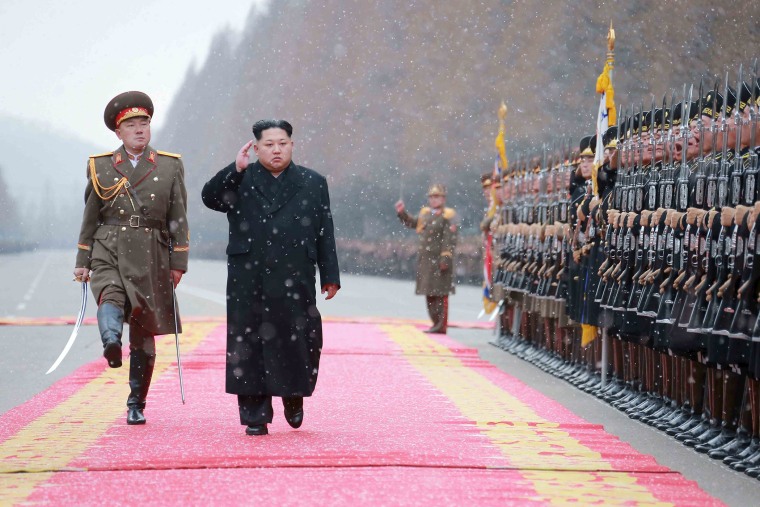It was literally last week when the United States appeared to be confronting a nuclear crisis with North Korea. Sebastian Gorka, a top White House adviser on national security, told a national television audience, "This is analogous to the Cuban missile crisis."
There were days last week that some of us woke up and quickly checked the news to see if any missiles had launched while we were sleeping.
And yet, North Korea is no longer front-page news. In fact, Donald Trump held a press conference yesterday, and no one thought to ask any questions about the burgeoning crisis, since it didn't seem especially important.
So how is it, exactly, that a week ago today a White House official compared the circumstances to the Cuban missile crisis, and now the story is an afterthought? Zack Beauchamp made a compelling case that the American president got distracted -- which turned out to be a very positive development for international stability.
Experts think this deescalation -- what analyst Robert Carlin calls "a decisive break in the action" -- happened in part because the president's focus has been on Charlottesville since Friday night."The media (and the president) was distracted over the weekend, which gave some breathing space for the situation," Jenny Town, the assistant director of the US-Korea Institute at Johns Hopkins, tells me.
It's important to understand what made last week scary. North Korean bluster wasn't new; Kim Jong-un's threats against Guam weren't new; and intelligence pointing to advances in the regime's nuclear capabilities weren't entirely new. As Rachel explained on the show last week, what changed the equation was Donald Trump and his alliterative tirades.
The more the American president threw around phrases about "fire and fury" and "locked and loaded," the more serious the crisis became. What everyone needed to improve the security environment was for Trump to simply stop talking.
Or in this case, to start talking about something else.
As it turns out, that's what happened. Trump started defending racists and stopped talking about attacking North Korea, and wouldn't you know it, the temperature cooled.
Beauchamp's piece added, "This doesn't mean the North Korea crisis is over -- US-South Korea military exercises, scheduled to begin August 21, have the potential to reignite the conflict.... But it does mean, amazingly enough, that a US domestic crisis has made a war with North Korea marginally less likely -- merely by taking away the president's attention."
Unfortunately, Trump tweeted this morning, "Kim Jong Un of North Korea made a very wise and well reasoned decision. The alternative would have been both catastrophic and unacceptable!"
To which much of the world responded, "Can't someone throw a shiny object at this guy to distract him again?"
